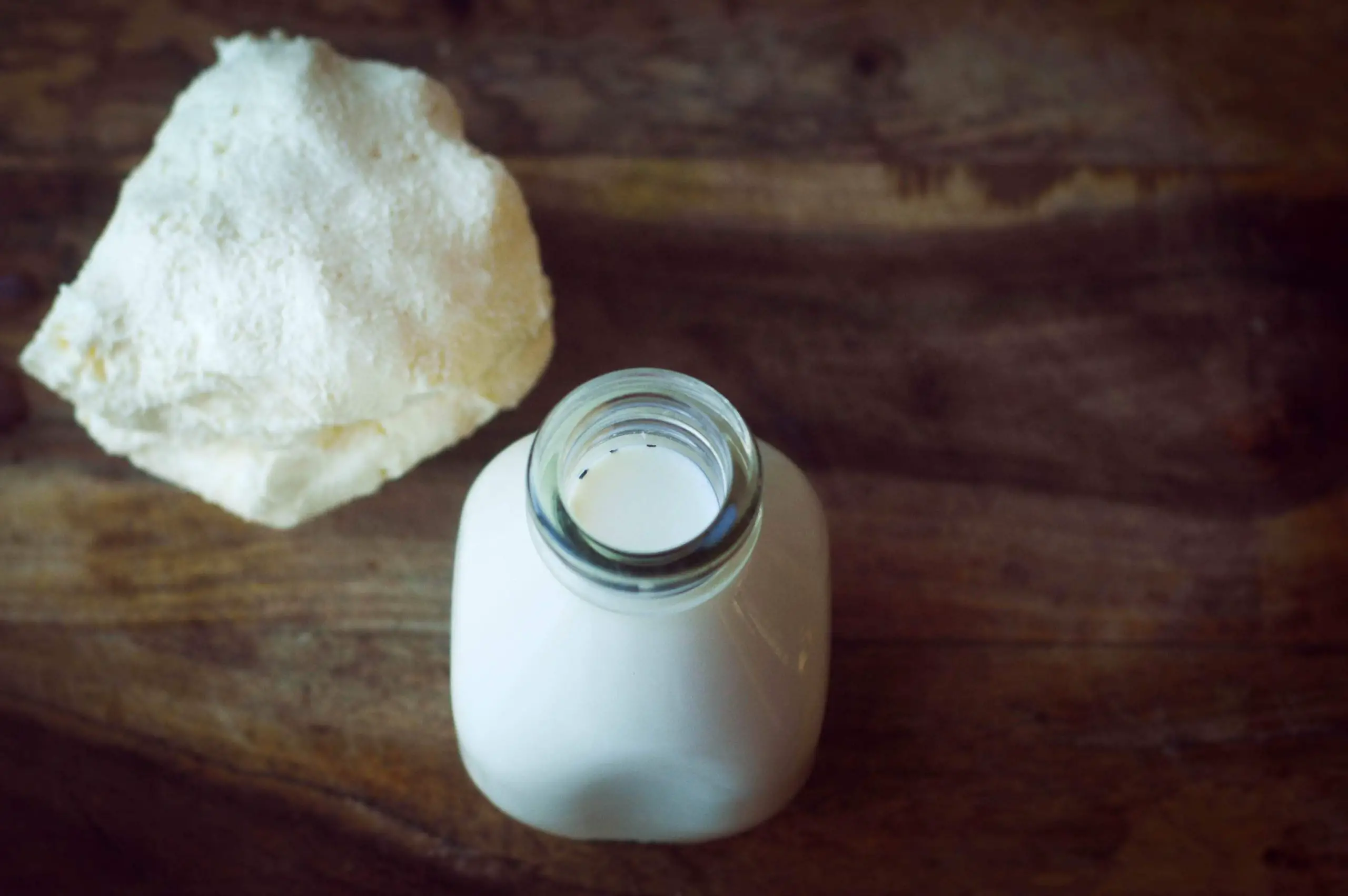
As the industrialized world has became more ‘sanitary’ in all ways from the overuse of toxic chemical hand sanitizers to the pasteurization of food and dairy products, many original, old world traditions have been lost along the way.
It’s unfortunate because many of these foods offer health benefits the likes of which you won’t find in restaurant cuisine or in most ‘modern day’ packaged foods.
Among them is a type of fermented food that first became popular back in the 1920’s, and has been linked to several different health benefits.
It also may include at least two different kinds of probiotics, making it a food that improves digestion in many people.
This particular food is cultured buttermilk, and it’s being hailed as a healing food for the lactose intolerant and those looking to heal their digestive system in a powerful way.
What is Cultured Buttermilk?
Also known as buttermilk, cultured buttermilk is a fermented dairy product that is still common in cuisine from countries like India, Poland, Finland, Pakistan, Nepal and Lebanon.
It is cultured, which means that beneficial bacteria such as the Lactococcus lactis or Lactobacillus bulgaricus probiotics have been added to it.
It’s different from milk kefir, another gut friendly drink, in terms of how it’s made.
Milk kefir is made with kefir grains and the milk of a cow, sheep or goat, while cultured buttermilk is made by fermenting and increasing the acidity of the milk itself.
Traditionally, this healthy milk was the liquid left behind after the churning of butter or cultured cream, which is how it got its name.
Buttermilk has a slight sour taste reminiscent of yogurt, and goes well with fruit.
It’s thicker than regular milk, and is often used in baking.
Health Benefits of Cultured Buttermilk
The benefits of buttermilk include the following according to Healthline.com:
-High in protein, with 8 grams per serving.
–Rich in Vitamin B12, with 22% of the daily value.
-Aids in digestion because of the presence of probiotics.
-Packed full of calcium, with 22% of the daily value.
-Offers a source of Vitamin K2, the vitamin that helps our bodies more effectively absorb and utilize Vitamin D.
Buttermilk is not one of the top five food based sources of Vitamin K2, but it does offer enough K2 to make a difference in your diet.
-Supports strong bones
While everyone digests dairy products differently, the calcium, phosphorus and Vitamin K2 in buttermilk are excellent for bone health when properly absorbed in the human body.
Buttermilk goes well in several different recipes, and is also made in vegan coconut milk or almond milk versions.
“Buttermilk is a great of several important nutrients, making it a worthy addition to any healthy diet,” said dietitian Rachel Link, who added that it may help to heal cases of gum disease.
“In particular, it is high in protein along with micronutrients like calcium, riboflavin, vitamin B12, phosphorus and potassium.”
Buy organic whenever possible, and avoid pasteurized, non-organic store versions to reap the most benefits.